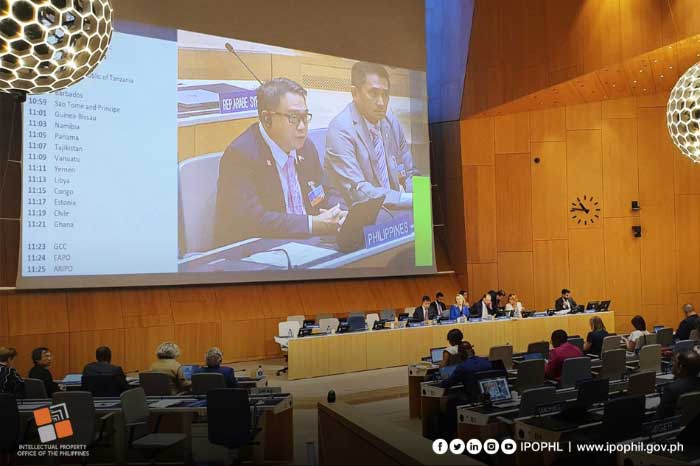
The Intellectual Property Office of the Philippines (IPOPHL) recently joined 193 member-states at the World Intellectual Property Organization’s (WIPO) 64th General Assemblies (GA) in Geneva, Switzerland, showing its commitment to strengthening multilateral cooperation and shaping a global intellectual property (IP) system that responds to nations’ and individuals’ evolving needs.
Held from July 6 to July 14, 2023, the WIPO GA is an annual high-level event that features a series of meetings on various issues affecting the global IP system.
It is a key platform for discussing ways forward in building an effective and inclusive IP system on the backdrop of pressing global concerns, such as the challenges and opportunities from emerging technologies, climate change and widening wealth disparities.
“Since collaboration between partners is key to achieving an effective IP system, IPOPHL continues to actively engage with key stakeholders, including international institutions such as the ASEAN, the Asia Pacific Economic Cooperation and WIPO. Together, we aim to serve our public, enhance the quality of our products and services and increase IP creation, filings and knowledge-sharing,” Director General Rowel S. Barba said in his message at the GA opening.
The IPOPHL chief highlighted the Philippines’ push to integrate IP into its journey to recovery and longer-term inclusive growth.
“As a transformative tool, the IP system was formally institutionalized in the Philippine Development Plan (PDP) 2023-2028, driven by the desire to boost our country’s production and fledgling manufacturing sectors. Accordingly, an IP chapter was included in the Philippine Export Development Plan (PEDP) 2023-2028 for the first time, which highlighted the importance of IP to exported products and services, bearing in mind our nation’s dream to become an agile export powerhouse,” Barba added.
The PDP underscores the importance of strengthening the IP ecosystem in boosting innovation and protecting the traditional cultural skills of Filipino creative industry stakeholders and indigenous cultural communities against infringement. It targets a 16-rung jump, from 59th in 2022 to at least 43rd by 2028, in the Global Innovation Index which measures IP creation and protection activities among dozens of other sub-indicators.
Meanwhile, the PEDP aims for the country to become a major exporter of high-value products and services by 2028. It envisions more Filipino exporters taking advantage of their IP in adding value to their products, availing of the benefits of the international systems for registration and protecting their IP assets even before introducing their products and services in the global market.
“Seeing that IP is a crucial element in promoting and supporting innovation and creativity in the country, IPOPHL was made part of the national councils created under the Philippine Innovation Act of 2019 and the Philippine Creative Industries Development Act of 2021. President Ferdinand R. Marcos, Jr. himself personally presides as Chair of the National Innovation Council,” Barba added, referring to new measures that place innovation and creativity at the center of the country’s development and transformation agenda.
The IPOPHL chief thanked WIPO, under its current Director General Daren Tang, for its continuous support for IPOPHL, especially throughout its recently completed chairmanship at the ASEAN Working Group on IP Cooperation and now as it spearheads the APEC IP Experts Group (IPEG).


















